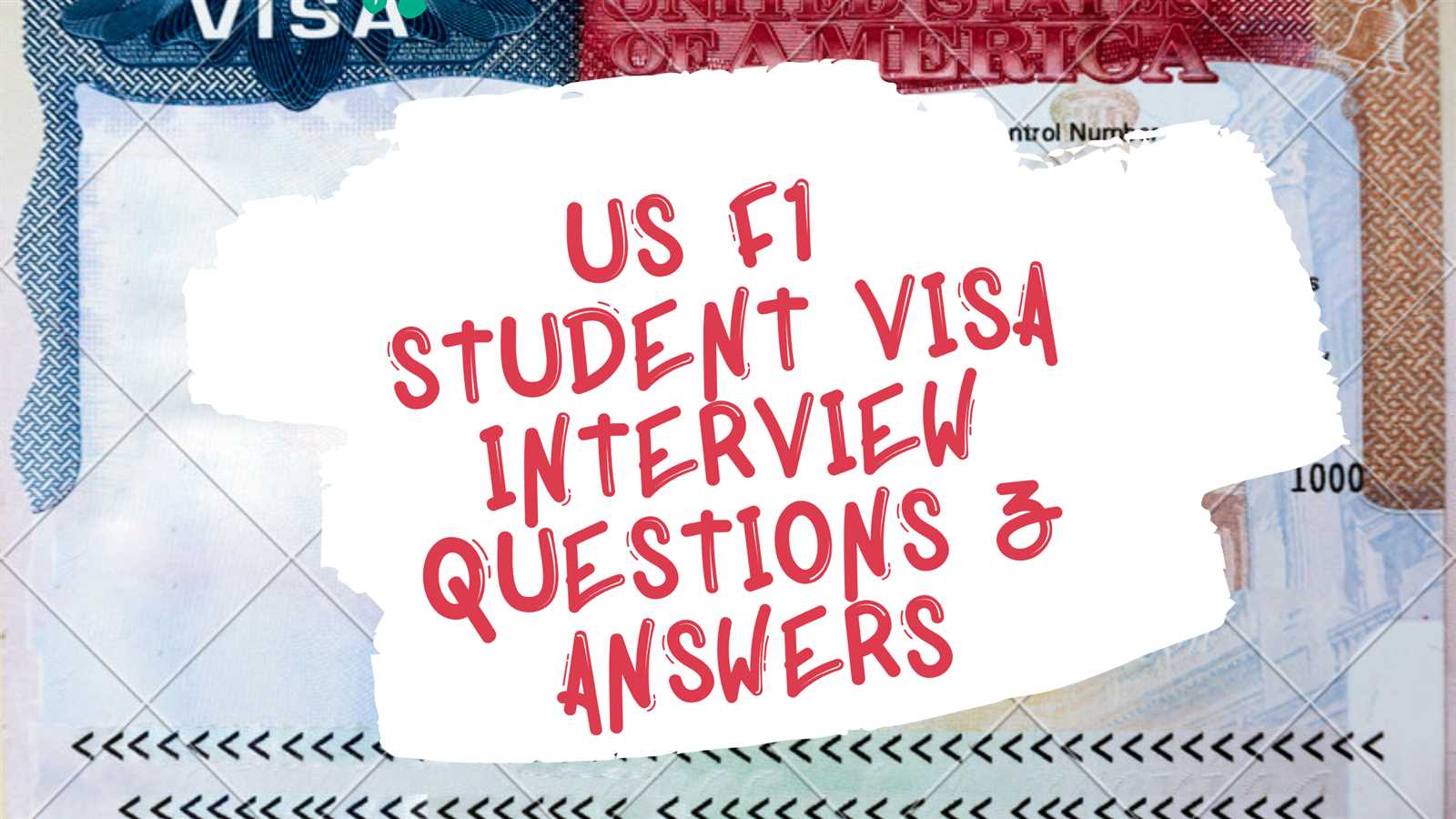
When applying for the opportunity to study in the United States, one of the most crucial steps is the evaluation process at the embassy. This stage requires thorough preparation, as the outcome can significantly impact your academic future. The officer will assess your intentions, financial stability, and plans for returning to your home country.
Proper preparation is key to feeling confident and conveying the right information. Knowing what to expect and how to approach various inquiries can make all the difference. Each interaction is designed to understand your motivations and ensure you meet the necessary criteria for entering the U.S. for educational purposes.
Being well-prepared allows you to respond with clarity and demonstrate your genuine intent. It’s important to focus on your goals, the reasons behind your study choices, and your commitment to returning home after completing your education. This will help the officer make an informed decision and increase your chances of success.
F1 Visa Interview Preparation Tips
Preparing for the embassy evaluation process is a vital part of securing the opportunity to study in the United States. Understanding what the officer expects from you and how to present your intentions clearly will increase your chances of a successful outcome. Proper preparation can make the difference between a quick approval and unnecessary delays.
Know Your Purpose
Before stepping into the embassy, be sure that you can clearly articulate your academic goals, why you chose your program, and how it aligns with your career aspirations. Officers want to ensure that you are committed to your studies and will benefit from the experience. Make sure to emphasize the long-term value of your education and how it will help you grow professionally and personally.
Prepare Your Documents
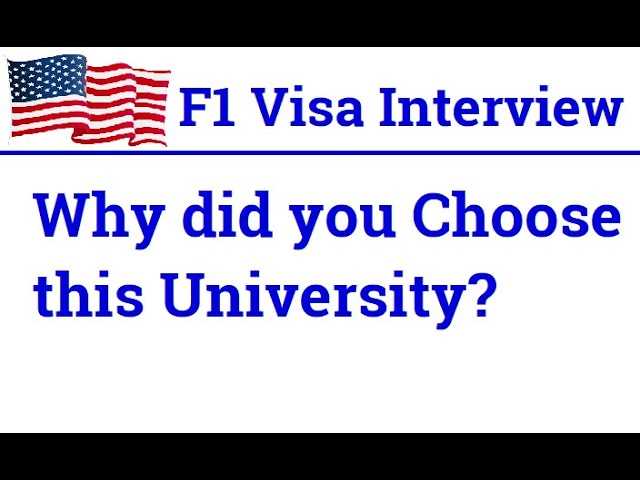
Having all necessary documents organized and ready for submission is crucial. This includes financial statements, enrollment letters, and evidence of ties to your home country. Consistency and clarity in your paperwork show that you are well-prepared and serious about your plans. Double-check everything to avoid unnecessary mistakes.
Confidence, honesty, and preparedness are your best tools for a smooth process. By thoroughly understanding what is required and practicing your responses, you’ll present yourself as a focused and responsible applicant.
Common F1 Visa Interview Questions
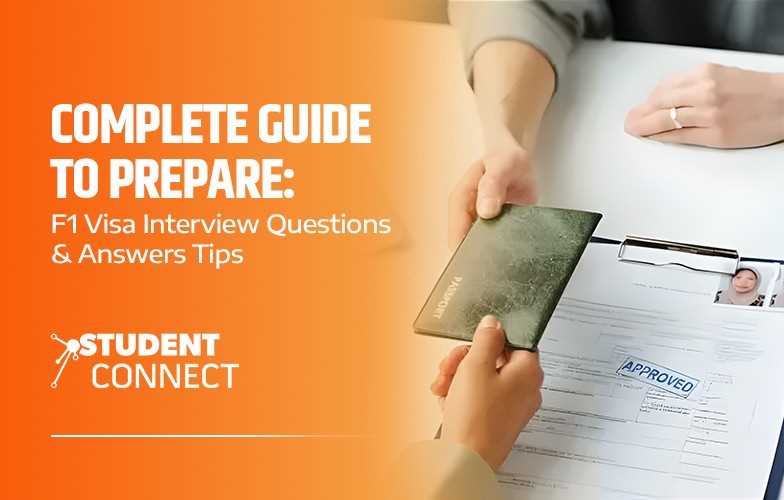
During the evaluation process, the officer will ask a series of standard inquiries to assess your eligibility for study abroad. These inquiries are designed to gather information about your academic goals, financial stability, and ties to your home country. Understanding the types of questions asked can help you prepare and provide clear, honest responses that highlight your intentions and preparedness.
| Question | Purpose |
|---|---|
| Why did you choose this program and university? | To understand your academic goals and reasons for selecting your course of study. |
| What are your plans after completing your studies? | To assess whether you intend to return to your home country after graduation. |
| How will you finance your education? | To evaluate your financial stability and ability to cover tuition and living expenses. |
| Why did you choose to study in the United States? | To determine your motivation for studying abroad and why you selected the U.S. over other countries. |
| What is your educational background? | To review your academic history and qualifications leading to your current choice of study. |
Being ready for these typical inquiries will help you express your motivations clearly and show that you have thoroughly thought through your plans and goals.
How to Answer Visa Officer Questions
When speaking with the embassy official, your responses should be clear, confident, and concise. The officer is looking to understand your motives for studying abroad, your financial stability, and your long-term plans. Approaching this part of the process with a calm and prepared mindset will help you present yourself in the best light.
Be Honest and Direct
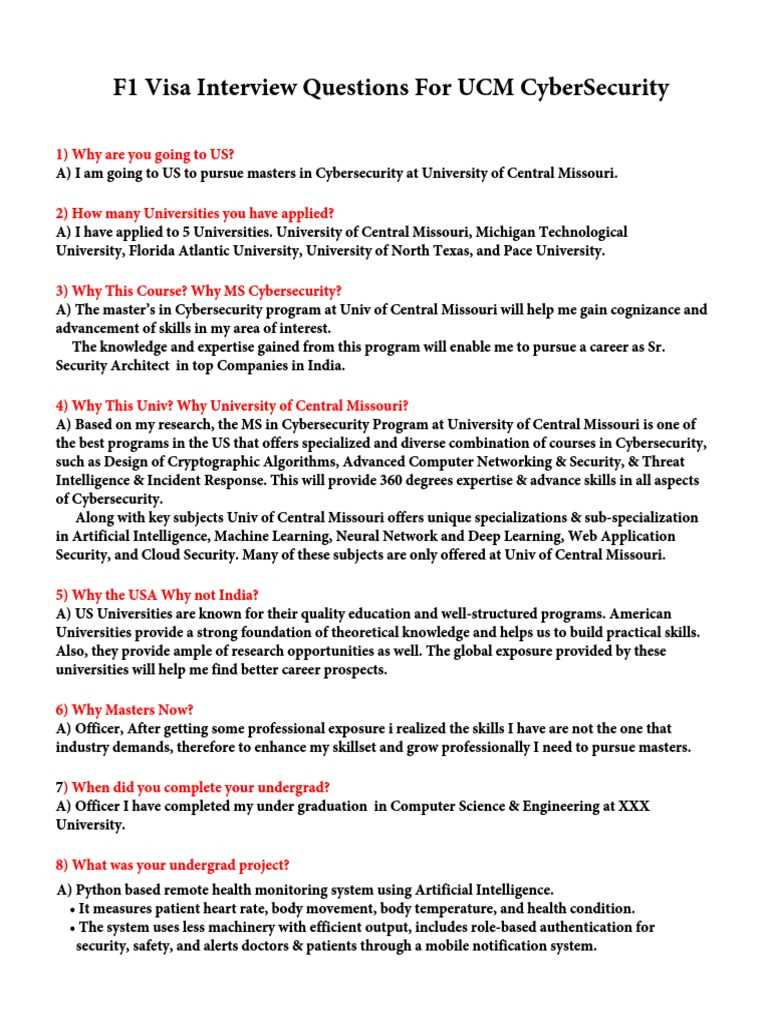
Always provide truthful responses to each inquiry. Officers are trained to detect inconsistencies or misleading information, and honesty is key to building trust. Stick to the facts and avoid exaggerating any details about your background, finances, or future plans. If you don’t know the answer to something, it’s better to admit it rather than attempt to guess.
Keep Your Responses Focused
While it’s important to be thorough, long-winded responses can be counterproductive. Stick to the point, answer the specific query being asked, and avoid going off-topic. Officers value clarity and efficiency, so practicing your responses ahead of time can help you express your thoughts in a concise manner.
By staying calm, being truthful, and keeping your responses focused, you can confidently navigate this part of the process and increase your chances of success.
Documents Needed for F1 Visa Interview
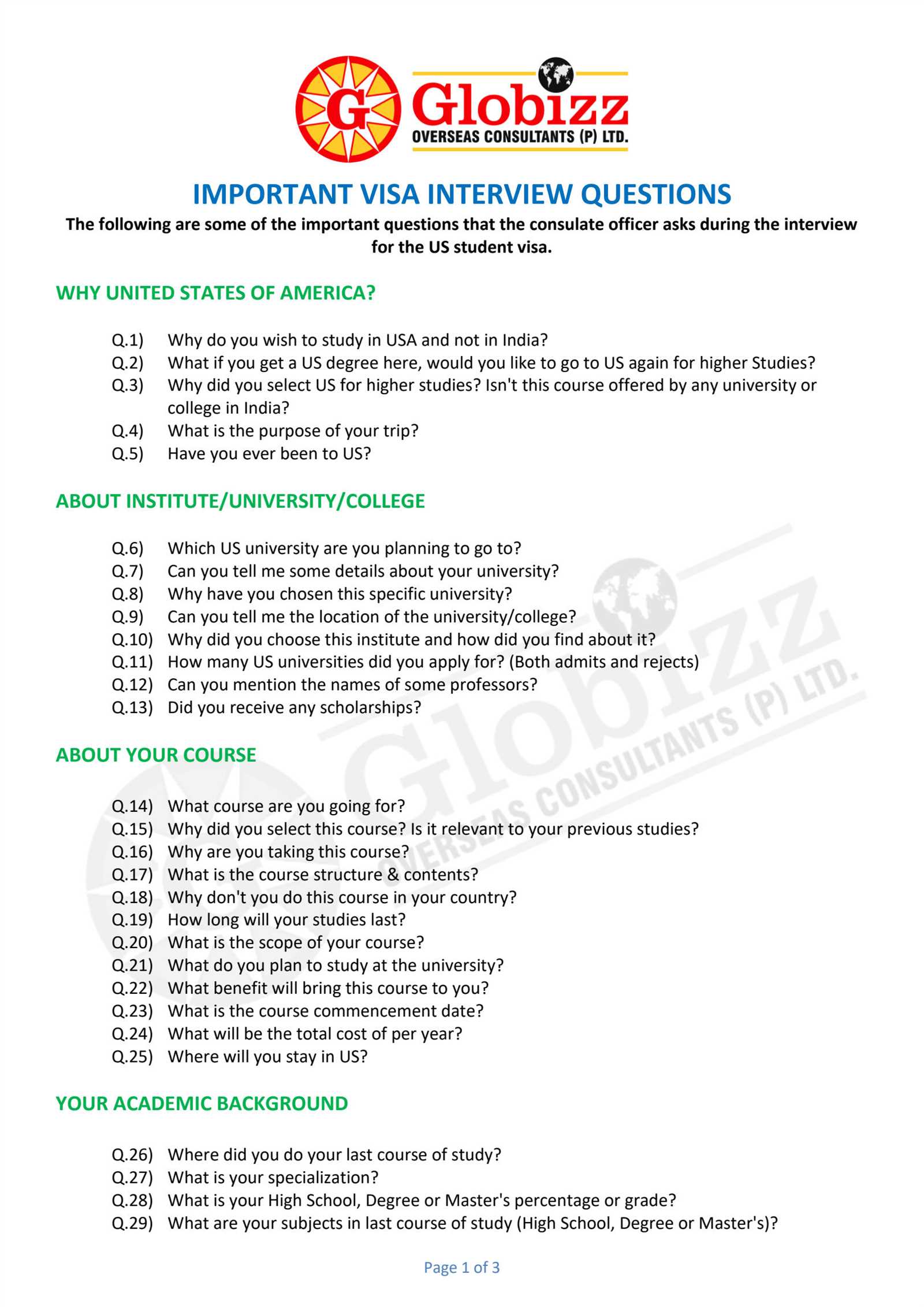
When preparing for the embassy meeting, it’s essential to gather all the necessary paperwork that demonstrates your eligibility and preparedness for studying abroad. The documents you provide play a crucial role in supporting your application and ensuring a smooth process. Being organized and thorough with your paperwork can significantly improve your chances of approval.
The following items are typically required for the embassy evaluation process:
- Passport – A valid passport with sufficient validity for the duration of your stay.
- Form I-20 – The certificate of eligibility for nonimmigrant students provided by your U.S. educational institution.
- SEVIS Fee Receipt – Proof of payment for the SEVIS fee, which is required for student registration.
- Proof of Financial Support – Bank statements, affidavits of support, or scholarship letters that show you can cover your tuition and living expenses.
- Visa Application Form DS-160 – The online application form with a confirmation page that includes a barcode.
- Passport-size Photographs – Recent passport-size photos that meet the specified requirements.
- Educational Documents – Transcripts, diplomas, and standardized test score reports that verify your academic background.
- English Proficiency Test Scores – If applicable, scores from tests such as TOEFL or IELTS that prove your proficiency in the English language.
It’s crucial to double-check each document for accuracy and ensure everything is up to date. Any missing or incorrect paperwork could lead to delays or complications during the process.
What to Expect During the Interview
When you attend the embassy meeting, it’s important to know what to anticipate so that you can be well-prepared. The process is usually straightforward, but understanding the flow can help reduce any anxiety. You will be asked to provide various documents and respond to questions that assess your eligibility for studying abroad. The officer will want to confirm your intentions, financial stability, and ties to your home country.
During the session, expect to be greeted by the official, who will likely begin by asking for your paperwork. Once they verify your documents, they will ask several focused inquiries to better understand your academic plans, financial situation, and future career aspirations. The officer’s goal is to ensure that you meet the criteria for entry and have legitimate intentions for studying in the U.S.
While the process is typically brief, it’s crucial to remain calm, confident, and clear in your responses. You should answer all inquiries honestly and succinctly, as this will help the officer make an informed decision. The outcome of the meeting will depend on how well you communicate your readiness to pursue your education and return home afterward.
Key Tips for a Successful Interview
To ensure a smooth and successful embassy meeting, preparation is crucial. Knowing how to present yourself, your intentions, and your plans can make a significant difference in the outcome. Below are some essential tips that can help you stand out and increase your chances of approval.
Be Confident and Clear
Confidence is key during the process. Speak clearly and directly, and avoid rambling. Focus on providing clear, concise responses that directly address the officer’s concerns. Practicing your responses ahead of time can help you stay on track and reduce nervousness.
Be Prepared with Documentation
Ensure that you have all necessary documents neatly organized and ready for presentation. Missing or incomplete paperwork can create delays or complications. Double-check everything to avoid unnecessary issues.
| Tip | Why It’s Important |
|---|---|
| Stay Calm | It helps you think clearly and respond effectively to each inquiry. |
| Be Honest | Honesty fosters trust and ensures your answers align with your documentation. |
| Be Brief Yet Thorough | Clear, to-the-point responses make a better impression and save time. |
| Dress Professionally | First impressions matter, and dressing appropriately shows respect for the process. |
By following these guidelines, you can present yourself as a prepared, responsible, and serious applicant, giving you the best chance of success.
Overcoming Nervousness at the Interview
It’s natural to feel nervous before a significant meeting, especially when your future plans are on the line. The pressure of presenting yourself clearly and answering questions about your goals and intentions can be overwhelming. However, with the right strategies, you can manage your anxiety and approach the process with confidence.
Preparation is Key
One of the best ways to overcome nervousness is through thorough preparation. Knowing what to expect and practicing your responses in advance can help you feel more at ease. Rehearse common topics, such as your academic plans, financial situation, and long-term goals, so that you can respond confidently without hesitation.
Focus on Breathing and Relaxation
During the session, take deep breaths to calm your nerves. If you feel overwhelmed, pause for a moment, take a breath, and gather your thoughts before answering. Staying physically relaxed can help keep your mind focused and reduce anxiety. It’s important to remind yourself that the process is a routine one and that you are fully prepared.
Visualizing success before the meeting can also help boost your confidence. Picture yourself calmly and confidently speaking, answering each inquiry with ease. This mental preparation can greatly reduce feelings of nervousness.
By using these strategies, you can manage stress and improve your ability to handle the process with calmness and clarity.
How to Prove Your Intent to Return
One of the key elements that the official will evaluate during the process is your intention to return to your home country after completing your studies. It’s important to demonstrate that you have strong ties to your homeland and clear plans for your future, ensuring that you will not overstay your permitted time abroad.
To effectively show your intent to return, you should focus on providing evidence that you have significant reasons to come back home once your studies are completed. These reasons can include family, career prospects, or financial commitments.
Present Strong Ties to Your Home Country
Strong connections to your home country can help affirm your intention to return. These ties may include:
- Family Connections: Demonstrating that you have immediate family members, such as parents or siblings, who reside in your home country can provide reassurance that you plan to return.
- Career Opportunities: Providing evidence of a job offer or career plans upon your return can show that you have a clear professional path waiting for you.
- Financial Obligations: Documents showing mortgages, bank loans, or other financial commitments that require your return to manage them can strengthen your case.
Clarify Your Study Plan
Explain how your studies will benefit your career prospects in your home country. If possible, provide a detailed plan for how you will use the knowledge gained during your studies to contribute to your community or profession. This can be an effective way to prove that your time abroad is temporary and that your long-term goals lie at home.
By providing clear evidence of your intent to return, you increase the likelihood of a successful outcome. Be transparent about your plans and use supporting documentation to back up your claims.
Handling Denial and Reapplication
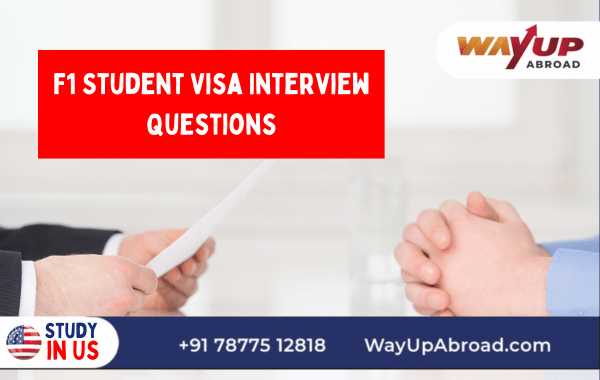
Facing rejection during the application process can be discouraging, but it’s important to understand that a denial doesn’t necessarily mean the end of your plans. Many applicants face setbacks, and with the right approach, you can strengthen your case and reapply successfully. The key is to understand the reasons for the refusal, address the issues, and demonstrate your preparedness for a second attempt.
Understanding the Reasons for Denial
After being denied entry, it’s crucial to reflect on the possible reasons the official may have had for the decision. Common causes of rejection include insufficient proof of financial support, lack of clarity in your study plans, or doubts about your intent to return home after completing your program. By thoroughly reviewing your initial application and feedback from the decision, you can identify areas for improvement.
Steps to Reapply Successfully
If you decide to reapply, there are several steps to take to increase your chances of success:
- Review Your Documents: Ensure that all your paperwork is complete, accurate, and up to date. This includes financial statements, academic records, and proof of ties to your home country.
- Address the Issues: If your previous application was denied due to specific concerns, make sure to address those points in your new application. Provide additional documents or clarification if necessary.
- Showcase Your Intent to Return: Reinforce your commitment to returning home after your studies by providing stronger evidence of your ties, such as family relationships, job prospects, or financial obligations in your home country.
- Prepare for the Next Step: When reapplying, be well-prepared for any potential inquiries. Practice your responses and ensure you can explain why you are a credible applicant and how your situation has changed since your last attempt.
Reapplying after a denial can feel like a daunting task, but with careful preparation and attention to the details, you can strengthen your application and improve your chances of success in the future.
Understanding the F1 Visa Interview Process
The process of applying for approval to study abroad involves several important steps, one of the most critical being the face-to-face meeting with an official. During this time, the officer evaluates your eligibility, assesses your documents, and ensures that your intentions align with the regulations of your temporary stay. Understanding the process beforehand will help you prepare thoroughly and increase your chances of a positive outcome.
At the core of the procedure is a series of inquiries designed to verify your purpose for traveling, your plans for studying, and your ties to your home country. The officer will want to confirm that you intend to return once your academic goals are complete. This is a routine but crucial part of ensuring that applicants meet all requirements for their temporary stay.
What to Expect During the Meeting
During the session, you can expect to be asked direct questions regarding your education, future career goals, and financial support. The officer will likely review your application and any supporting documents you’ve provided. It’s important to remain calm, confident, and ready to explain your intentions clearly.
Common Factors Assessed by the Officer
In most cases, the official will evaluate several key aspects of your application:
- Financial Stability: Demonstrating that you have sufficient funds to cover your tuition and living expenses during your stay is essential.
- Academic Intentions: Explaining why you chose your specific program of study and how it fits into your long-term career goals.
- Home Country Ties: Showing evidence of family, employment, or other commitments in your home country that will motivate you to return after your studies.
By preparing in advance, you can feel more confident and clear during the meeting. Being transparent, honest, and organized will help you present a compelling case for your temporary stay abroad.
F1 Visa Interview Body Language Tips
Your physical presence and non-verbal communication play a significant role in shaping the outcome of your application process. Body language can communicate confidence, sincerity, and preparedness, all of which are essential during the evaluation. While verbal responses are important, how you present yourself can leave a lasting impression on the officer. It’s crucial to remain aware of your posture, facial expressions, and overall demeanor to project the right message.
Maintain Confident Posture
Confidence is key when meeting with an official. Your posture speaks volumes about your attitude and preparedness. Stand or sit up straight with your shoulders back. Avoid slouching, as it may give the impression of nervousness or lack of seriousness. A good posture conveys that you are confident and ready to discuss your plans. Additionally, ensure that you do not cross your arms, as this can appear defensive. Instead, keep your hands relaxed and open to suggest openness and willingness to engage.
Eye Contact and Facial Expressions
Eye contact is one of the most powerful forms of non-verbal communication. Maintaining steady but not overly intense eye contact demonstrates that you are attentive, confident, and respectful. It helps to build trust and shows that you are sincere in your responses. At the same time, be mindful of your facial expressions. A calm and pleasant expression can make a positive impression, while excessive nervousness or fidgeting might indicate uncertainty. Practice staying composed and relaxed, even if you feel nervous.
By paying attention to these subtle cues, you can ensure that your body language aligns with your verbal responses, helping to create a positive and confident impression during the process.
How to Prepare Financial Documents
When applying for approval to study abroad, demonstrating that you have sufficient financial resources is a critical step. The authorities need to ensure that you can support yourself throughout your stay without relying on unauthorized work. Preparing your financial documents carefully and accurately will help convey your preparedness and ability to manage your expenses during your time away. Here’s how to ensure that your financial paperwork meets the necessary requirements.
Key Documents to Include
Several financial documents will be required to show proof of funds. These should be clear, organized, and up-to-date. Make sure to include the following:
- Bank Statements: Recent statements (typically 3-6 months) from your personal or family accounts that show sufficient funds to cover tuition and living expenses.
- Affidavit of Support: A signed declaration from a sponsor (e.g., a parent or relative) stating that they will support you financially during your studies, along with their financial documentation.
- Tax Returns: Copies of tax returns or tax assessment notices from the last year to verify the financial stability of your sponsor, if applicable.
- Scholarship Offers: Documentation of any scholarships or financial aid you have received to help cover expenses during your stay.
- Proof of Property Ownership: If available, include documents proving the ownership of property, which can add credibility to your financial situation.
Organizing Your Financial Documents
Organization is key when preparing your financial documentation. Ensure that all papers are neatly arranged, easy to understand, and properly translated (if necessary). It’s recommended to have originals along with certified copies for verification. Additionally, include a brief cover letter explaining the documents and how they relate to your financial capacity. This will help the officer quickly assess your situation and understand your financial preparedness.
By presenting a comprehensive and well-organized financial portfolio, you’ll make a strong case for your ability to support yourself, ensuring that this part of your application goes smoothly.
Questions About Your Study Plans
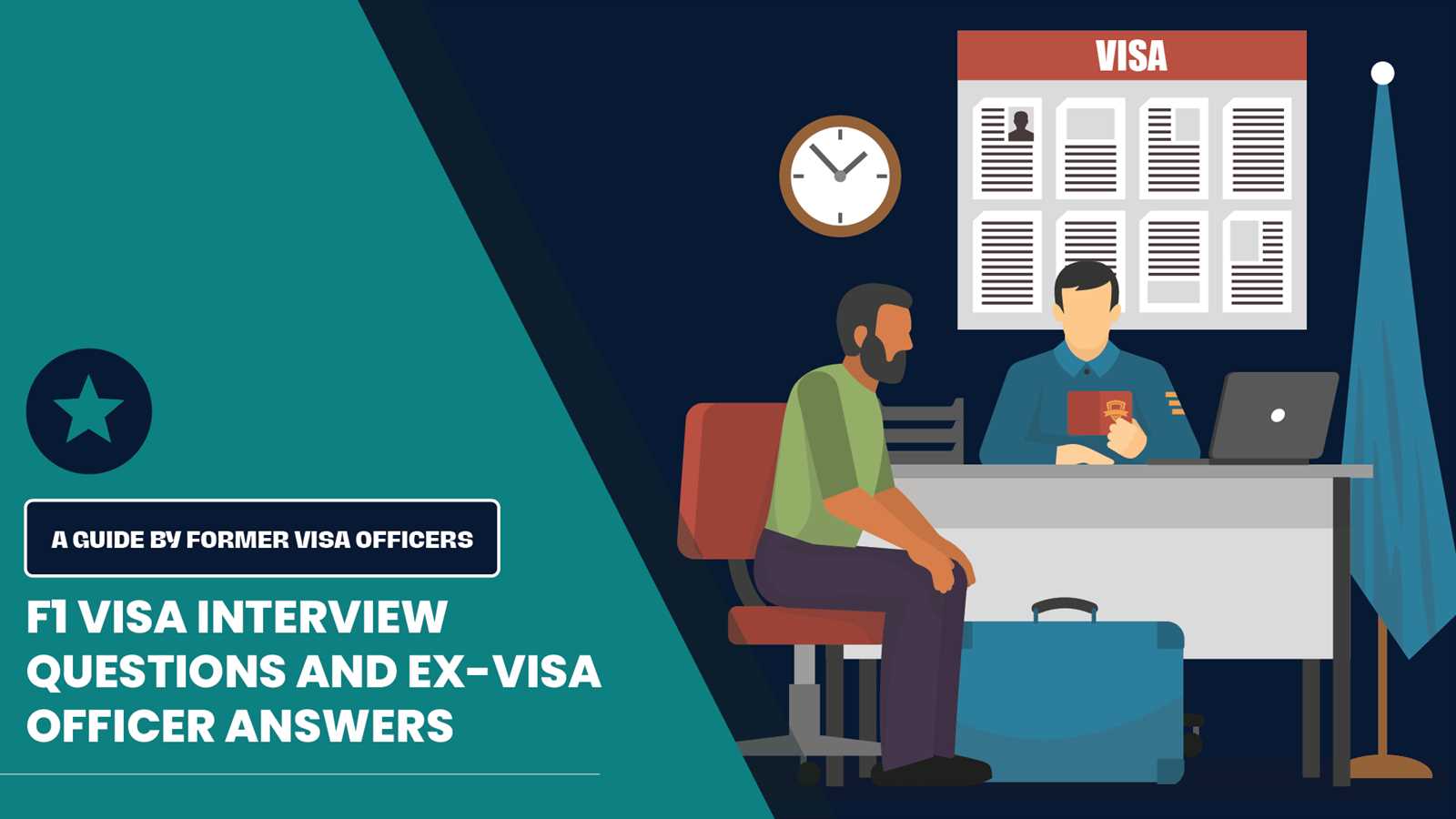
During the process, you may be asked to elaborate on your academic goals and plans for your time abroad. These inquiries help the authorities gauge your commitment to your studies and determine whether your purpose aligns with the criteria for approval. Being well-prepared to discuss your chosen program, university, and how your studies fit into your long-term career aspirations is crucial to demonstrating your seriousness and intent.
It’s important to clearly articulate why you have selected a particular course of study and how it will contribute to your professional growth. Be ready to discuss your reasons for choosing the specific educational institution, what aspects of the program attracted you, and how this opportunity fits into your future career plans. Strong, thoughtful responses will reinforce your academic intentions and show that you have carefully considered your educational journey.
Be Ready to Explain Your Program Choice
The officer may inquire about your specific program or field of study. Be prepared to explain why you chose that program and how it aligns with your academic background and career goals. Highlight any unique aspects of the program that appeal to you, such as faculty expertise, research opportunities, or the curriculum’s relevance to industry trends. Mention how this particular course will help you advance in your chosen field and how it could shape your future professional opportunities.
Link Your Studies to Your Career Goals
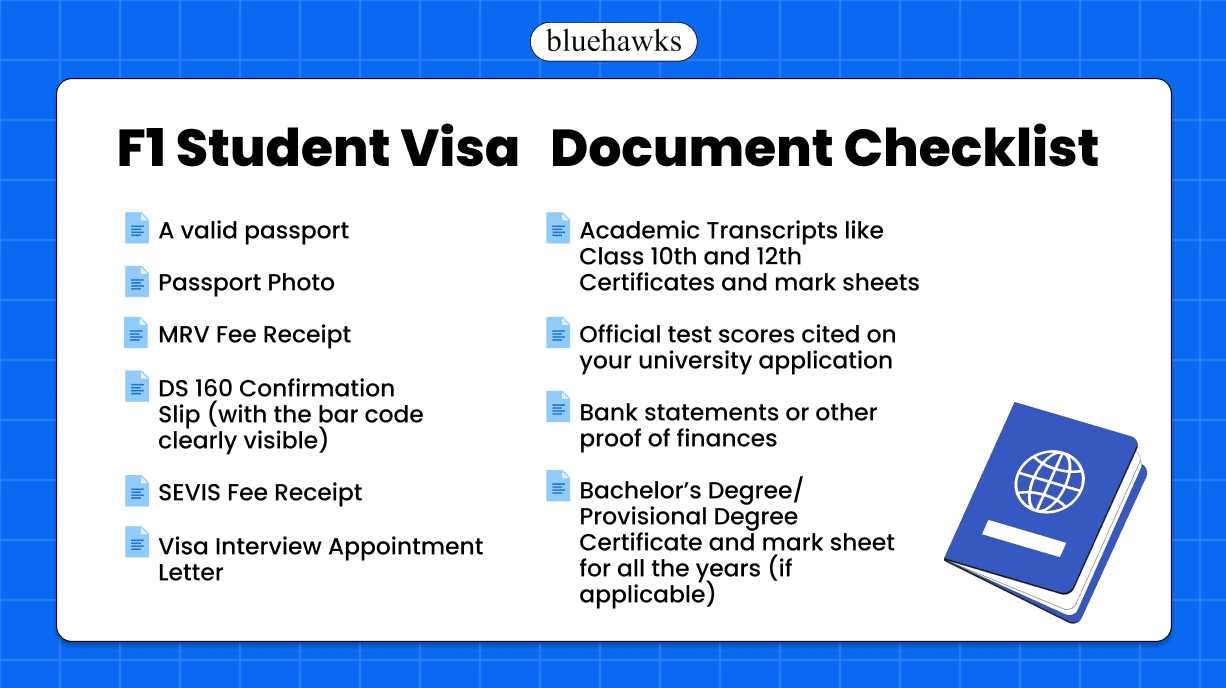
Another common line of questioning involves how your education will help you achieve your long-term career goals. Be ready to connect your studies to a clear career path. Discuss how the knowledge and skills gained from the program will help you excel in your chosen industry and contribute to your professional aspirations. A well-defined vision of how your studies will benefit your future can reinforce your commitment and seriousness in pursuing education abroad.
By preparing for these discussions, you can demonstrate that your academic journey is purposeful and aligns with your professional goals, which will make a strong impression on the evaluating authorities.
How to Discuss Your College Choice
When asked about your decision to study at a particular institution, it’s essential to explain clearly why you chose that specific college or university. This part of the conversation provides an opportunity to demonstrate your research, understanding of the school, and how its offerings align with your personal and academic goals. Your response should reflect thoughtful consideration and show that the institution matches your academic aspirations and future career ambitions.
In your response, focus on what makes the institution stand out. It could be the quality of the faculty, unique programs, campus resources, or the school’s reputation in your chosen field of study. Explaining how these factors support your academic and professional objectives will highlight that your decision is well-founded and that you have a clear understanding of what you hope to achieve during your studies.
Highlight Key Features of the Institution
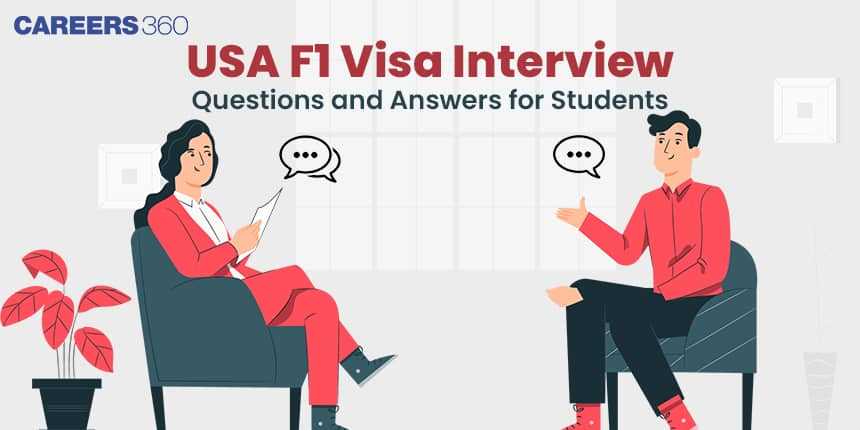
Begin by mentioning the specific aspects of the school that attracted you. Whether it’s the faculty’s expertise, research opportunities, or the school’s cutting-edge facilities, emphasizing what makes the institution unique will show that you’ve carefully considered your options. Be prepared to explain how these factors will help you develop academically and professionally. For instance, you might mention that the university is known for its strong programs in your area of interest, or that it offers internships or networking opportunities that are valuable for your career path.
Show How the School Aligns with Your Goals
It’s important to link your college choice to your long-term goals. Explain how the school’s curriculum, extracurricular activities, or international connections will help you achieve your professional objectives. For example, if you’re pursuing a career in technology, you could mention the school’s strong ties to the tech industry or its focus on innovative research. This will help demonstrate that you are making a strategic decision, choosing a place that will prepare you for success in your field.
By presenting your decision in a clear, thoughtful manner, you can show that your choice of institution is aligned with your academic ambitions and future plans, making a strong case for your commitment to pursuing higher education abroad.
Importance of Strong Ties to Home Country
One of the key factors in gaining approval for studying abroad is demonstrating your connection to your home country. Establishing that you have strong ties helps to reassure authorities that your intentions are genuine and that you are committed to returning home after your studies. These ties can be personal, professional, or financial, and they serve as evidence that you have reasons to come back and continue your life in your home country once your academic journey is complete.
When preparing for this part of the process, it’s important to show that you have meaningful relationships, responsibilities, or prospects that will encourage you to return home. This could include having close family members, a potential job waiting for you, or other personal commitments that bind you to your home country. Strong ties demonstrate that your primary purpose for traveling is to study and that you don’t intend to overstay or abandon your home country.
Personal and Family Connections

One of the most significant factors in proving your intention to return is your personal and family ties. If you have immediate family members, such as parents or siblings, living in your home country, be sure to mention them. This can demonstrate that you have strong familial obligations and are unlikely to stay abroad permanently. Additionally, if you have a support network in your home country, such as a community or long-term friendships, it’s helpful to highlight these as well.
Career and Financial Commitments
Another important aspect is your professional prospects or financial stability in your home country. If you have a job offer, internship, or business opportunity waiting for you after your studies, make sure to provide supporting documents or detailed plans. Financial stability, such as property ownership or investments, can also serve as proof that you have responsibilities and assets that tie you to your home country. These commitments can show that you are not planning to stay abroad indefinitely, but rather intend to return and contribute to your country’s economy and society.
By clearly illustrating your strong ties to your home country, you provide evidence of your intent to return and show that your primary goal is to further your education, not to remain abroad long-term.
Tips for Answering Personal Background Questions
When discussing your personal background, it’s essential to approach the conversation with confidence and clarity. These questions often aim to gather information about your family, education, and past experiences to better understand your motivations for studying abroad. Being prepared and answering these questions thoughtfully can leave a positive impression and show your genuine intentions. Below are some practical tips to help you answer personal background inquiries effectively.
Be Honest and Clear
Honesty is crucial when addressing questions about your personal life. Visa officers appreciate straightforward responses, as they help establish your credibility. Avoid giving vague or contradictory answers, as these may raise concerns. It’s better to provide clear, concise, and truthful information about your background, your family, and your academic journey.
Show Strong Family and Community Connections
Questions about your family are common, as visa officers want to assess your ties to your home country. Here’s how you can respond effectively:
- Highlight family support: Mention how your family supports your educational goals and explain any responsibilities you have towards them.
- Discuss local connections: If you are involved in community activities or have long-term ties to your hometown, mention these as well. They can demonstrate stability and commitment.
- Explain future plans: If asked about your future after studying, explain how your family and community play a role in your long-term goals and how you plan to contribute to them once you return home.
Be Prepared to Discuss Your Education and Career Path
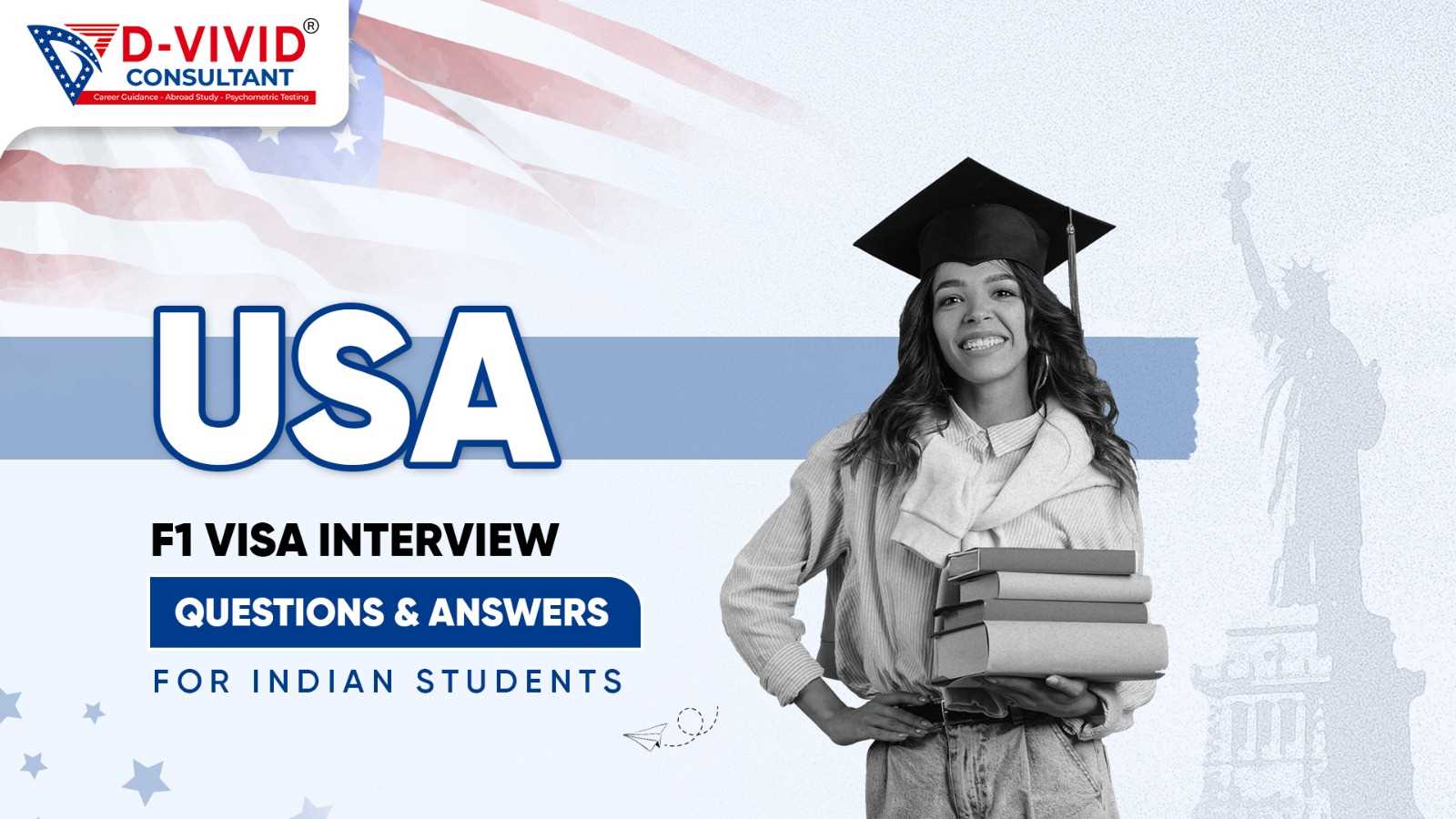
Expect questions about your academic background and your choice of study. This is a great opportunity to show that your goals align with your academic and professional interests. Be ready to:
- Explain your choice of program: Discuss why you selected a particular course or institution and how it aligns with your career ambitions.
- Describe past achievements: Talk about your previous academic accomplishments and how they’ve prepared you for further education.
- Connect studies to future opportunities: Link your education to job prospects or entrepreneurial aspirations in your home country. This can demonstrate your intent to return after completing your studies.
Answering personal background inquiries with confidence and clarity helps establish a strong narrative about your motivations, goals, and intentions, which can significantly increase your chances of success.
What to Do After the F1 Visa Interview
After completing the formal process, there are several important steps to take while you await the decision on your application. Staying organized and informed during this period can help you manage expectations and ensure you’re prepared for any next steps. Here’s a guide on how to proceed after your meeting.
Follow Up on Your Application Status

It’s important to keep track of your application status, especially if you’re waiting for further instructions or updates. Here are a few steps to consider:
- Check the processing timeline: Make sure you’re aware of the estimated processing time for your application. This can vary depending on the specific embassy or consulate.
- Monitor your email and phone: Stay alert for any communication from the embassy. They may require additional documents or clarification.
- Contact the embassy if needed: If the processing time has passed and you haven’t received any updates, feel free to inquire politely about your application status.
Prepare for Potential Outcomes
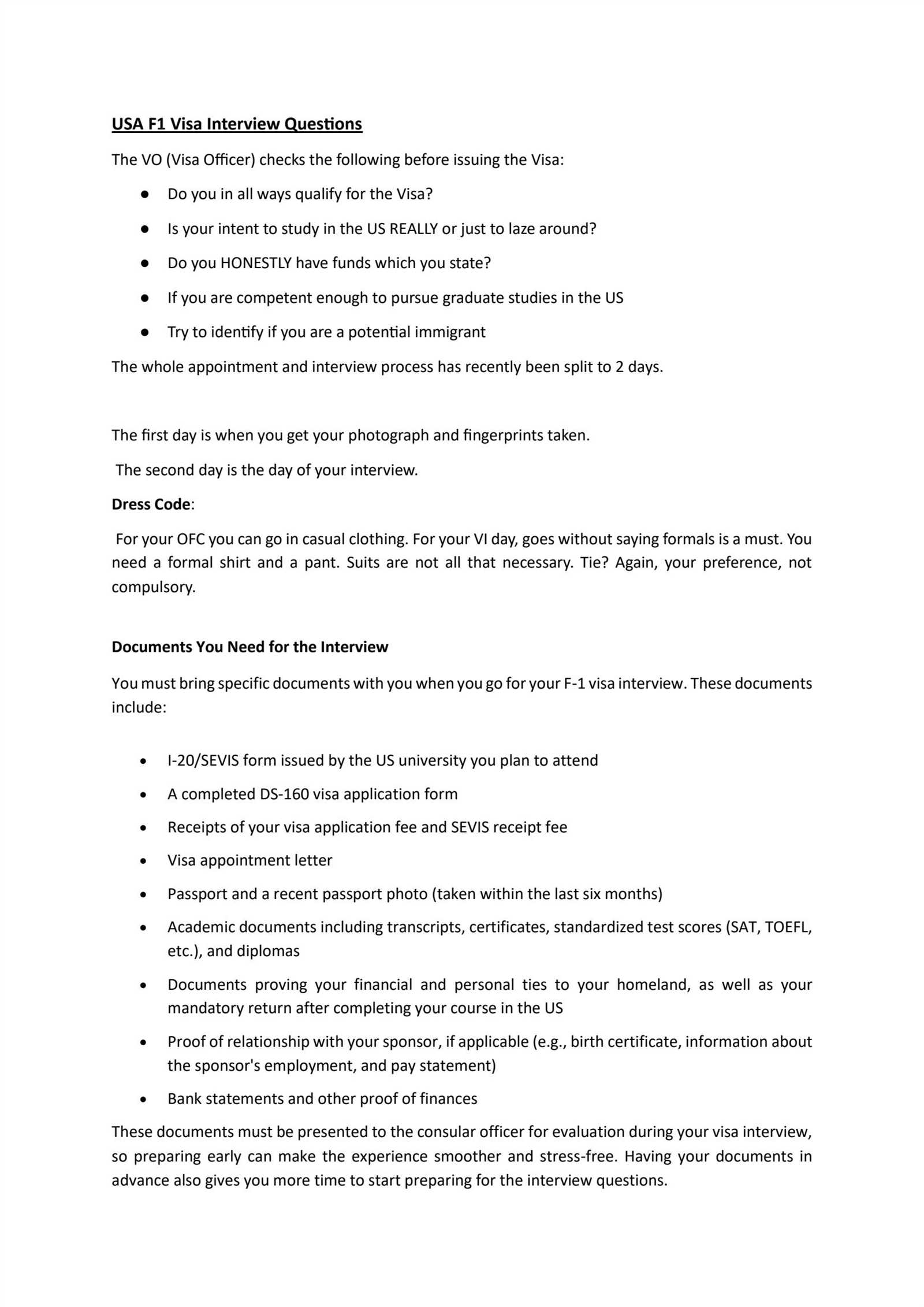
It’s essential to be ready for both positive and negative outcomes. Here’s what to consider depending on the result:
- If approved: Celebrate your success and ensure you follow any additional instructions provided. These may include paying fees, receiving a stamp, or collecting your travel documents.
- If denied: Don’t be discouraged. Review the reason for the denial and seek advice if you plan to reapply. Understand the areas that may need more clarification or stronger evidence before submitting a new application.
Whatever the outcome, staying organized, following up, and preparing for both possibilities will help you move forward with confidence in your academic journey.